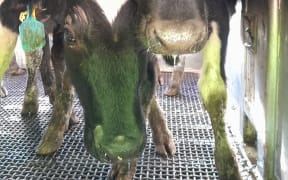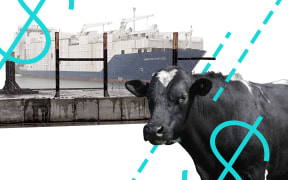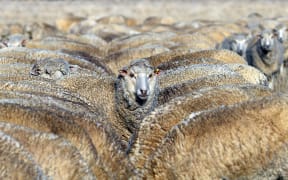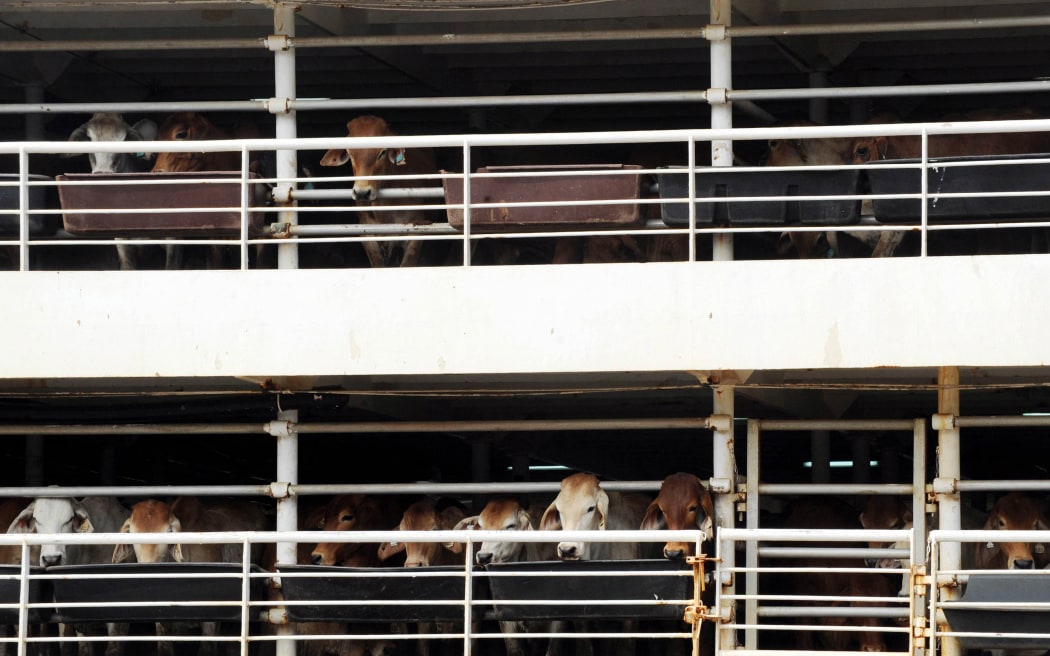
Australian cattle wait to be offloaded from a transport ship in Jakarta on 8 June 2011 (file image). Photo: AFP / ADEK BERRY
A petition calling on the government to keep the ban on sending livestock abroad by sea - despite promising to repeal it - is gaining support.
As of Wednesday afternoon, more than 11,000 people had signed the parliamentary petition in less than a fortnight before it will go to the select committee for consideration.
It was started by Dr John Hellstrom, former National Animal Welfare Advisory Committee chairperson, who was also once the chief veterinary officer for the Minister of Agriculture and Fisheries.
While he is retired now, after four decades working alongside the livestock export industry as a vet, regulator and advisor, he is adamant reversing the live export ban was a mistake - and that it unravelled all the hard work that led to this point.
"I'm really sad about it because we've taken a long time to get to the point we're at now where the trade has stopped, and because a few people can make money out of it, we're now talking about re-activating it," Hellstrom said.
"People from all over the world are looking at New Zealand and saying 'What's going on? You've been world-leading in this regard, and now you're turning your back on the animals again'. And that concerns me, but my primary concern is with the cows."
Hellstrom acknowledged the practice had changed significantly over the years - as with every tragedy involving the animal cargo ships, industry and governments have responded by improving conditions and rules to ensure the safety and welfare of the livestock.
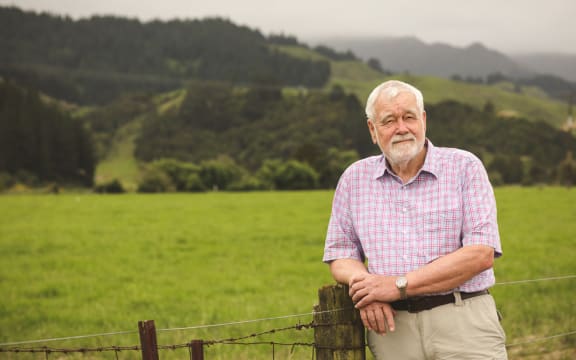
John Hellstrom started the petition to try to keep the ban on live animal exports in place. Photo: Jessica Jones Photography
While that had reduced the number of deaths, the suffering onboard and on arrival at the new destination were still very real, he said.
"People say that they're not dying, therefore, they can't be miserable.
"And from my point of view, that's a really bad measure of animal welfare. Animals suffer long before they die, and these animals are not having a great time on the boat."
Thirteen cattle out of more than 28,000 died from the last six shipments that left New Zealand in the first four months of 2022 before the ban came into effect - according to Ministry for Primary Industries data.
That is a mortality rate of 0.05 percent, which was similar to recent years.
But National has said in restarting exports it would create a gold standard with greater regulation to protect animal welfare and safety, such as purpose-built ships and a certification regime for importers.
Hellstrom said that still would not be good enough - and the gold standard was a joke.
"It doesn't actually change the equation. Animals still suffer and get killed.
"The gold standard won't change that - no gold standard can prevent a typhoon, a war, major mechanical breakdown.
"They talk about using the best ships. Well, even the best ships are pretty bloody awful."
Animal rights group SAFE's chief executive Debra Ashton said overturning the ban jeopardised the welfare of these animals and our international trading reputation.
"There are too many risks involved with sending animals overseas by by sea," Ashton said.
"There really isn't much that the government can do to control the welfare of those animals, whether it's onboard those ships or at the destination country. So we'd like to see them leave the ban."
SPCA commissioned research by Camorra Research which found - of the nearly 1000 people surveyed - 83 percent lacked confidence in ensuring animal welfare once the animals arrived at their destination.
Ashton said keeping the ban was supported by most New Zealanders, including farmers.
"The place I think the majority of New Zealanders would like to see the ban remain in place and you know, interestingly, I think there's a lot of farmers that would really like to see the band stay where it is as well.
"So we're hoping the government will read the room."
Ministry for Primary Industries director of animal health and welfare Dr Carolyn Guy said the prohibition would remain in place before it went out for consultation.
Associate Minister of Agriculture for animal welfare Andrew Hoggard said the government was seeking advice on amending the legislation - and while a timeline was still being worked through, it would go out for full public consultation first.
"I encourage everyone to fully engage in the public consultation," Hoggard said in a statement.
